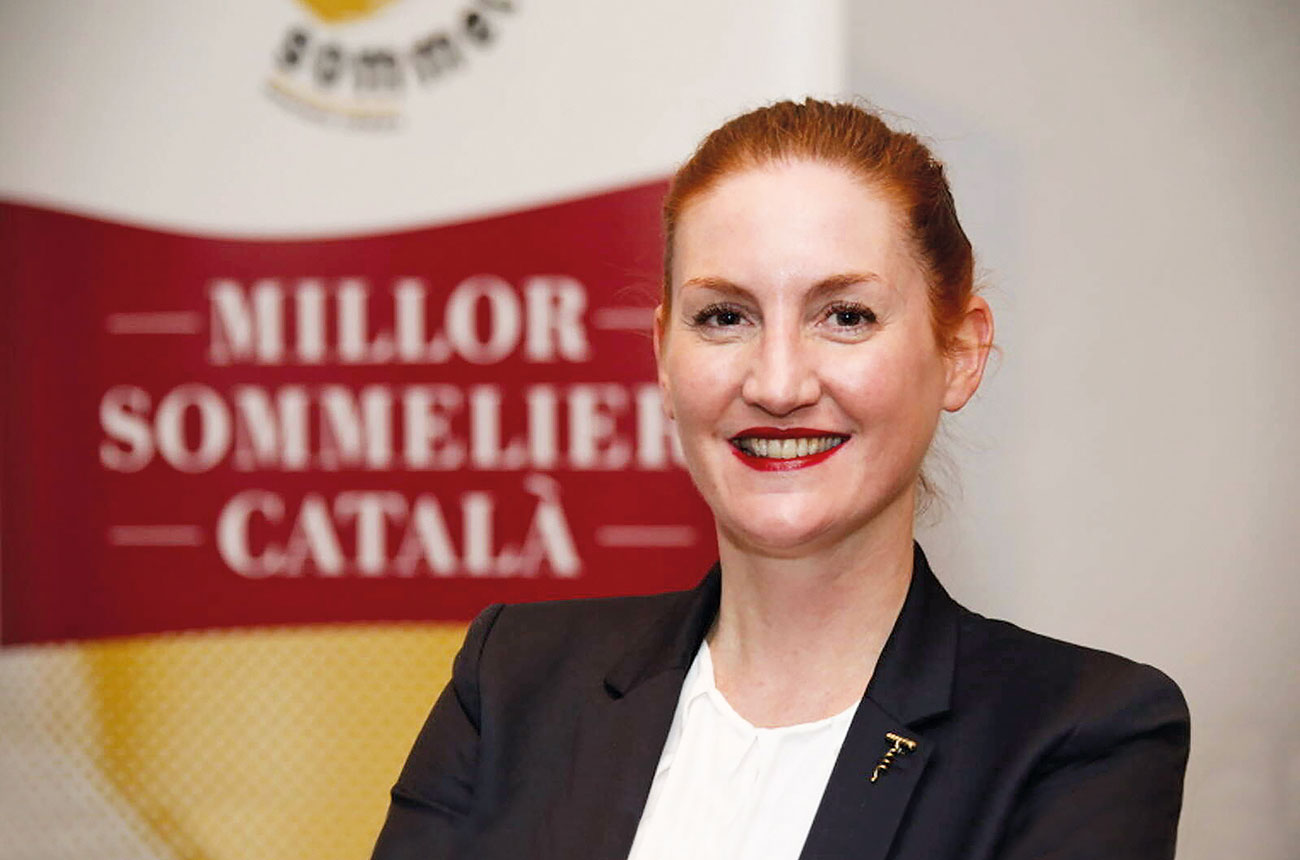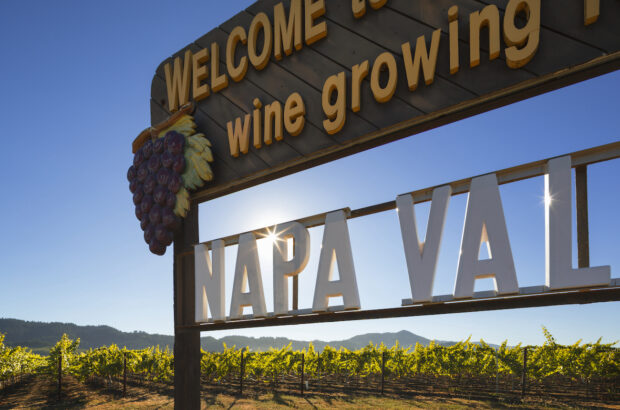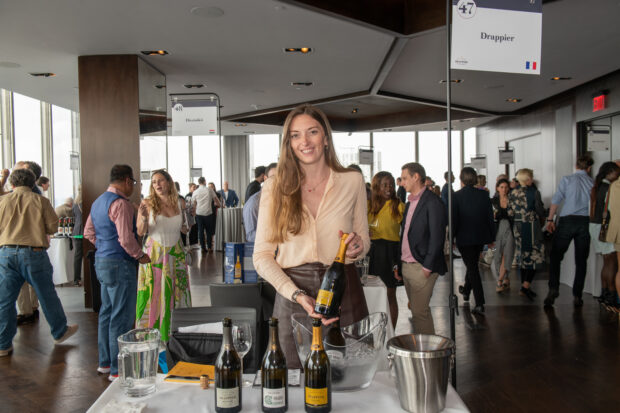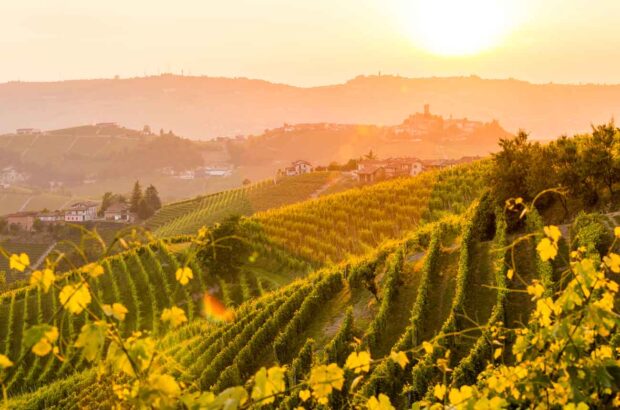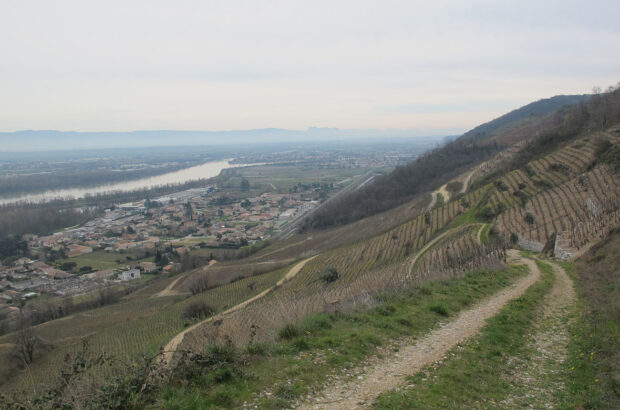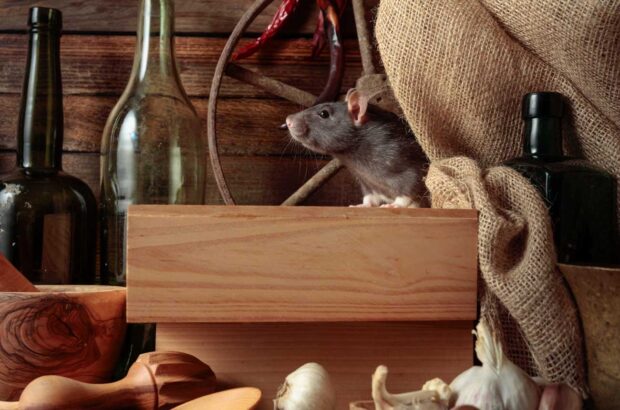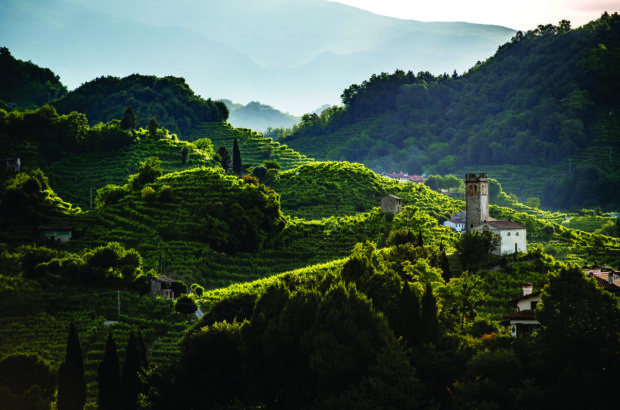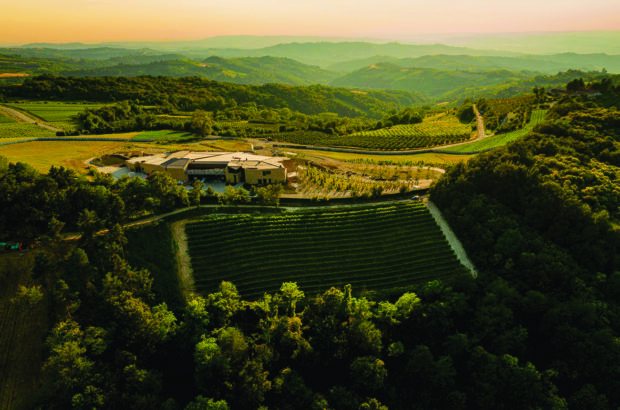Choosing a single Rioja wine from the entire line-up of producers and vintages is an almost impossible task. In Spain, Rioja features on practically all wine lists – and the same is broadly true worldwide. The great variety of styles in the region adds diversity: red, rosé, white, sparkling and sweet. Everything is possible.
As a sommelier, I was always aware that it is important to seek a balance between the historic brands that put Rioja on the map and smaller emerging producers. Of course, it is desirable to have older vintages. Some, such as the 1964, are a once-in-a-lifetime experience. But quality keeps improving and more recent vintages such as 2010, 2004 and 2001 are extraordinary.
Personally, I couldn’t choose just one Rioja wine, so I have selected some of the world’s top sommeliers to help me with this dilemma. The results are like the region: diverse, eclectic and fascinating…
Jose Félix Paniego
[pictured above]
Paniego, known as ‘Chefe’, is the knowledgeable head sommelier at Hotel Echaurren, a haven of peace within La Rioja, located in the stunning Spanish village of Ezcaray.
‘My choice, López de Heredia, Viña Tondonia Blanco 1947 , is probably not very easy to find today, although the vintage was rated as very good. This white has become something special for me, not only because of the liveliness and tension it still retains after being uncorked, but also because it was the wine I recently drank with my father, Félix.
‘Both he and my mother were good friends with late owner Pedro López de Heredia and his family. My father is about to turn 95, so it was a pleasure to see him savour this excellent white and capture the aromas of a not-so-distant past – as well as the memories of a lifetime. The lucky thing for us Riojanos is that these wines continue to be made with care and affection, and excellent vintages continue to appear all over the region.’

María José Huertas
Head sommelier of two-star Michelin restaurant Paco Roncero in Madrid.
‘My choice would be CVNE, Viña Real Gran Reserva 1994 . The Compañía Vinícola del Norte de España (CVNE) was founded in Haro in 1879; today, the same family remains faithful to this winery, with the affection that five generations have given to it. In all, it is a very fine ambassador for this emblematic wine region of Spain. CVNE has produced great classics that have made history and renewed traditions, always with the same commitment to quality.
‘Wineries such as Imperial, Viña Real, Monopole and Contino have accompanied me since I set out, as well as being among the first I visited. I have been lucky enough to return on many occasions. There has always been real excitement when tasting some of the very old treasures in their cellars, and always a warm welcome.’
 Pierre Eguiazabal
Pierre Eguiazabal
Eguiazabal runs wine cellar and wine bar-cum-restaurant Maison Eguiazabal. Founded in 1923, it’s based in Hendaye, in the southwestern corner of France, on the border with Spain.
‘I would choose Bodegas Sierra Cantabria, Señorío de San Vicente 2017, described by resident winemaker and viticulturist Marcos Eguren as follows: ‘It is a vineyard, Finca La Canoca; a variety, the “hairy” Tempranillo Peludo; and a winery, Señorío de San Vicente.’ It is a clear example of balance between complexity and elegance, fusing freshness and ageing notes. Pair it with a confit de canard de Landes with piquillo peppers from Lodosa. The tannins of the wine blend perfectly with the fat of the confit, and the fruitiness harmoniously accompanies the sweetness of the piquillo pepper, while the roasted and spicy tones of the dish match the toasted and balsamic notes of the San Vicente. A perfect symbiosis between products and cultures.’
 João Pires MS
João Pires MS
Director of wine at Melco Resorts & Entertainment in Macau, southern China.
‘I met Telmo Rodríguez here in Macau and he told me the story about Remelluri and long trips with his father to find its forgotten vineyards. Listening to him speak was inspiring and enchanting. Later, he invited me for dinner, and I was lucky to drink Bodega Lanzaga, Las Beatas 2011 (his first vintage) for the first time.
‘This wine is all about finesse and complexity, impressive delicacy and silky texture – it’s intense and profound, with an earthy undertone. I would match it with a simple but quite refined dish from our three-star Michelin restaurant Jade Dragon in the City of Dreams: stir-fried shredded Ibérico pork with bamboo shoot and hot pickled mustard root. The pork is succulent and fatty without being sticky, with a crispy skin that goes well with the lively acidity of Las Beatas. The wine cuts through the fat and explodes in the mouth, creating a wonderful salivary reflex. The earthy notes complement the crunchy bamboo shoots with a subtle flavour that’s woody and slightly nutty.
‘The spiciness is a challenge, but the wildness from an old terroir results in such intensity of flavour, while the field-blend grapes contribute to the wine’s huge complexity and immense length. The Tempranillo, with its vibrant fruity aromas, coupled with the Graciano’s high acidity and the high alcohol of Garnacha, help to “clean” the spice.’

Heidi Mäkinen MW
Already a sommelier, Mäkinen became a Master of Wine in 2019. She is portfolio manager and a partner of Finnish wine importer Viinitie and president of the Finnish Sommelier Association.
‘It feels almost impossible to choose one bottle above all others from a region that is so profoundly rooted in the history of wine, yet increasingly captivating and ever-changing. As a lover of all things classical, there are many valued red Riojas I could have chosen. However, I decided to wave the flag for one of the region’s white wines, showing what is possible when the right site is chosen to grow the indigenous Riojan varieties. Bodegas Nivarius, Edición Limitada 2016 is a blend of 60-year-old Viura and rare Maturana Blanca grown in high-altitude vineyards, which bring ageworthy concentration and freshness. Fermented and aged in large oak casks, this wine is exceptionally good value, beating many other richer-styled whites when it comes to gastronomic potential.’
 Mohamed Benabdallah
Mohamed Benabdallah
Benabdallah is head sommelier and maître d’ of one-star Michelin restaurant Asador Etxebarri, in the small Basque village of Atxondo.
‘I’ve chosen a wine from Abel Mendoza because he represents the true meaning of the word vigneron. He and his wife Maite prove that with effort, sacrifice and a lot of work, you can make something great without losing the artisanal aspect. Abel has stayed true to his philosophy and style despite fashions and trends. My choice is Abel Mendoza, Grano a Grano Graciano-Garnacha, made from two grape varieties that, in my opinion, have never been given their proper place in La Rioja but are given full prominence here. It’s a perfect combination.’
 Paz Levinson
Paz Levinson
Wine and beverage director of the Anne-Sophie Pic group (eight Michelin stars across five restaurants), Levinson was born in Argentina. When conditions permit, she is the DWWA Regional Chair for Argentina.
‘DSG, Phincalali 2010 takes me to Sweden, to an internship I did in 2016. That was when Rubén Sanz Ramiro (head sommelier at PM & Vänner in Småland) introduced me to this wine. Only 1,000 bottles of the 2010 were produced, so I’m privileged to have tasted it. A Tempranillo with Graciano and Viura, it’s a wine with aromas of herbs, garrigue, clove, mint and nutmeg, very balanced in the mouth and very fresh. A wine that made me rethink what I had learned about Rioja. Later, on a cold night in August 2017 in the Uco Valley, Chile, winemaker Matías Michelini gave me a special bottle to open, a Marqués de Murrieta, Castillo Ygay Reserva 1950. There was a silence in the room, a moment of reflection, of emotion. Across the years, that bottle spoke to us so lucidly, so expressively, so vividly.’
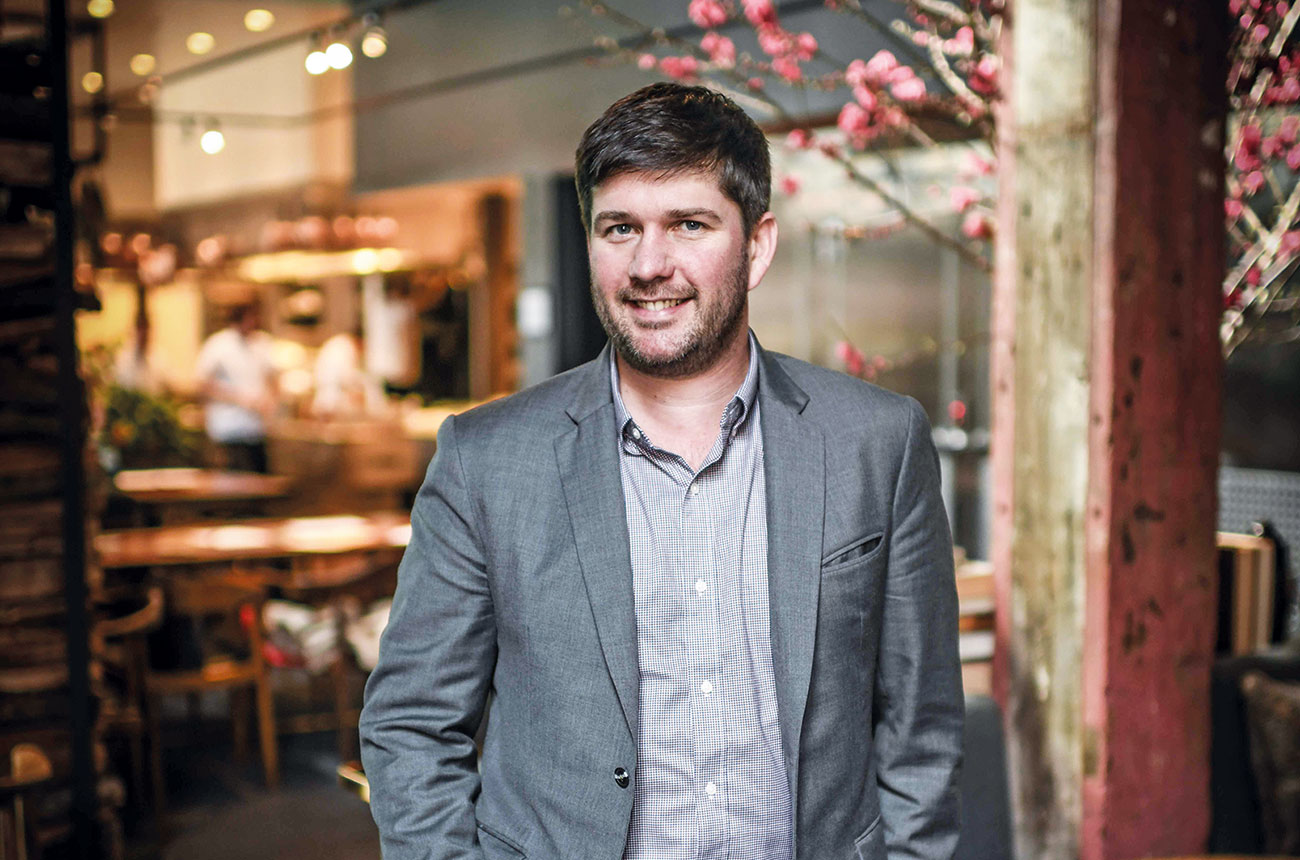
Mark Bright
Wine director and co-owner of two-star Michelin restaurant Saison in San Francisco.
‘I love Bodega Lanzaga, La Estrada by Telmo Rodríguez. I first sampled it at Asador Etxebarri in Atxondo, and it blew me away. It has acidity and aromatics, all in top form, and amazing balance. I am a Burgundy drinker, and this is in that same line of purity when it comes to fruit. The single-vineyard parcel philosophy is also very Burgundian, and I understand that. I’d love to drink this wine with a roast duck in its jus and some sort of red-fruit compote.’
 Roberto Duran Herrera
Roberto Duran Herrera
Duran Herrera is currently assistant head sommelier at private members’ club 67 Pall Mall in London and soon to be head sommelier at 67 Pall Mall Singapore. He has worked in hospitality for 17 years and was named Sommelier of the Year Spain in 2015.
‘I really like the classic styles of Rioja, and I particularly enjoy the more modern Riojas, among them Remírez de Ganuza. Few managed well in the very cold vintage of 2007; Pujanza did, and so did Remírez de Ganuza. The Remírez de Ganuza, Gran Reserva 2007 is out of this world: linear, structured, black fruited, spicy and crunchy. I called José [Ramón Urtasun, whose family owns the winery] this morning to order big formats for Singapore when we open the Club there.’
Audrey Doré
Doré is head sommelier of three- star Michelin restaurant El Celler de Can Roca in Girona, Spain.
‘Only the 2007, 2010, 2013 and 2016 vintages from Bodegas Pujanza have had the required climatology for winemaker Carlos San Pedro to offer us the vibrant great white Bodegas Pujanza, Añadas Frías. It is a unique proposal among the region’s white wines: its youth reveals an electric straightness, aromatic complexity and weight in the mouth, while its freshness is closer to northern Europe – as opposed to the opulence of many whites from the area. But the revelation comes with a few years of bottle rest. I was able to retaste the first vintage recently and was amazed at the stature it had acquired after 14 years.’


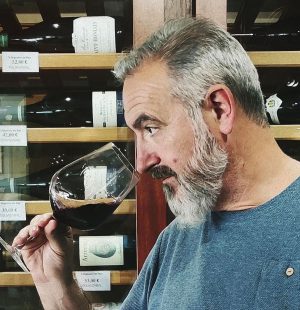 Pierre Eguiazabal
Pierre Eguiazabal João Pires MS
João Pires MS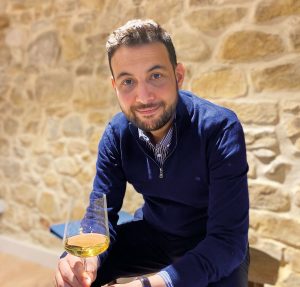 Mohamed Benabdallah
Mohamed Benabdallah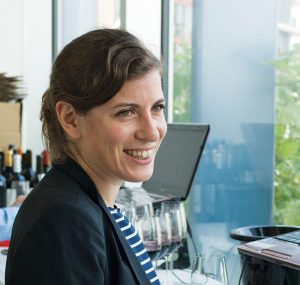 Paz Levinson
Paz Levinson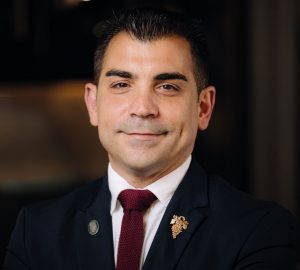 Roberto Duran Herrera
Roberto Duran Herrera